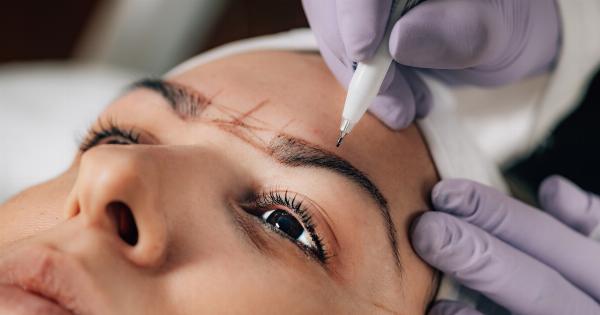Getting a tattoo is a big decision, and it’s important to be well-informed before taking the plunge. Tattoos are permanent, so you want to make sure you choose a design and placement that you will be happy with for the rest of your life.
To help you navigate the tattoo world, we’ve put together a list of what you need to know before getting inked.
1. Research Tattoo Artists
Before getting a tattoo, it’s crucial to research and find a reputable tattoo artist. You want to ensure that the artist has experience in the style you want and has a portfolio of high-quality work.
Look for customer reviews and testimonials to gauge the artist’s reputation and professionalism.
2. Be Clear About Your Design
Having a clear idea of the design you want is essential. Consider the size, style, and placement of the tattoo. Be sure to communicate your vision to the tattoo artist clearly, so they can bring your idea to life.
Keep in mind that intricate designs may require multiple sessions and could be more expensive.
3. Visit the Tattoo Studio Beforehand
It’s advisable to visit the tattoo studio in person before your appointment. This will give you a chance to assess its cleanliness and overall environment. Ensure that the studio follows strict hygiene practices and uses sterilized equipment.
A clean and professional studio is a must for a safe and positive tattoo experience.
4. Consider the Pain Factor
Pain tolerance varies from person to person, and tattoos can be uncomfortable, especially in sensitive areas. It’s essential to have a realistic expectation of the pain involved.
Keep in mind that different parts of the body have different pain levels. Research online or consult with your tattoo artist to get an idea of what to expect.
5. Think About Tattoo Aftercare
Proper aftercare is crucial for the healing process and the longevity of your tattoo. Your tattoo artist should provide you with detailed instructions on how to care for your new ink.
This typically involves keeping the tattoo clean, avoiding direct sunlight, and applying healing ointment as directed. Following aftercare instructions diligently will ensure your tattoo heals properly.
6. Understand the Risks and Potential Complications
While tattooing is generally safe, there are risks involved. It’s important to be aware of potential complications such as infection, allergic reactions to ink, or scarring.
Make sure to discuss any existing medical conditions or allergies with your tattoo artist beforehand to minimize the risks.
7. Get Familiar with Tattoo Removal if Necessary
Before getting a tattoo, it’s wise to consider the permanence of the decision. While tattoo removal techniques have improved, they can be expensive, time-consuming, and may not completely remove the tattoo.
Thinking ahead and choosing a design you will love forever significantly reduces the likelihood of regret.
8. Evaluate the Financial Investment
Tattoos can range in price depending on factors such as size, detail, and artist reputation. Take the time to evaluate the financial investment involved in getting a tattoo. Remember that a higher price often reflects the quality and skill of the artist.
Don’t compromise on quality for the sake of saving a few dollars.
9. Reflect on the Significance
Tattoos often have personal meanings or symbolize something important to the individual. Take the time to reflect on the significance of the design you choose.
Consider how it may resonate with you in the long term and whether it aligns with your values and beliefs.
10. Be Patient and Don’t Rush
Last but not least, be patient and don’t rush into getting a tattoo. Take your time to ensure you are making the right decision for yourself.
Tattoos are meant to be lifelong, so it’s important to be confident in your choice before you commit.



























